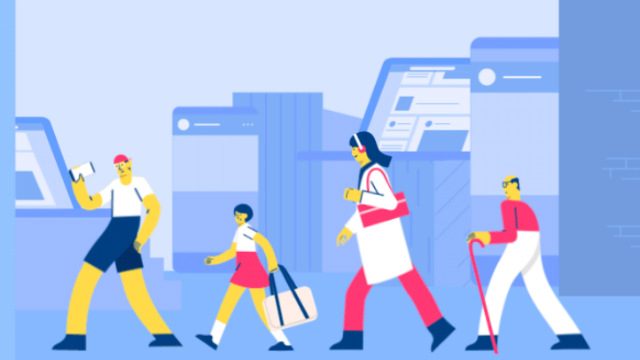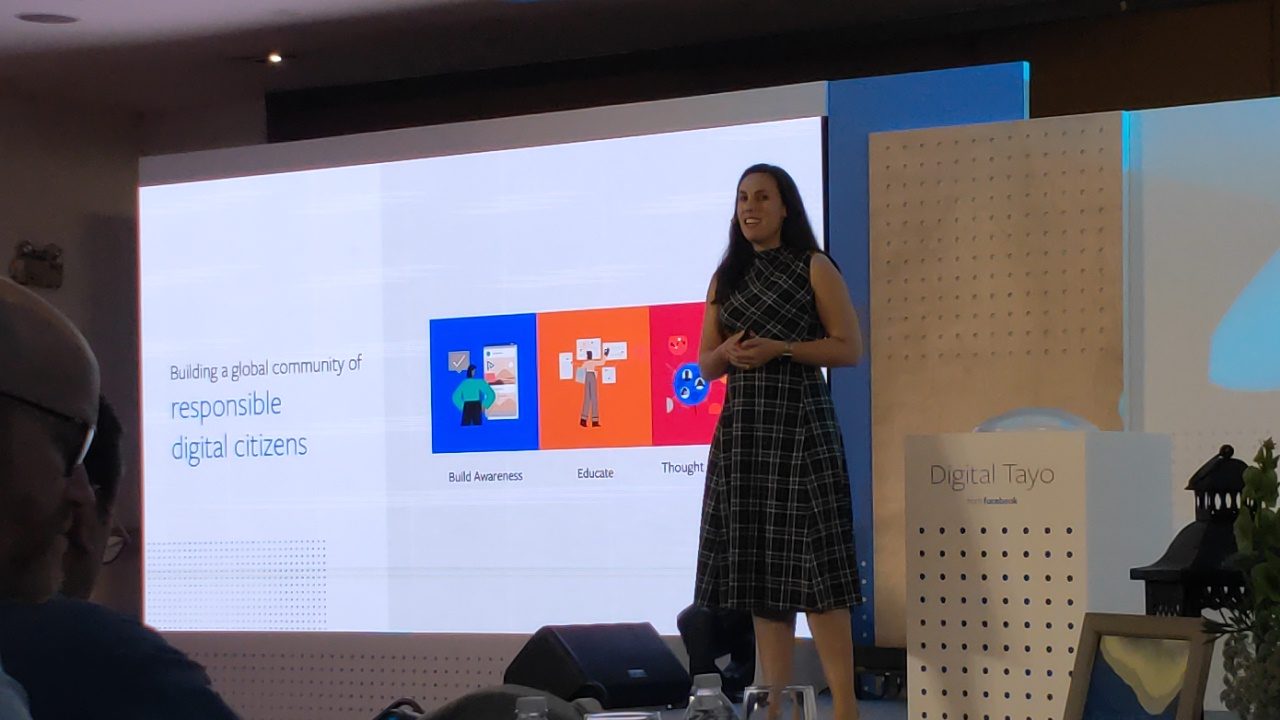SUMMARY
This is AI generated summarization, which may have errors. For context, always refer to the full article.

MANILA, Philippines – Facebook in March launched We Think Digital, its global digital literacy program aiming to enhance internet users’ digital hygiene including handling hate speech and disinformation, avoiding online scams, and maintaining online privacy and security.
The program on Tuesday, April 23, officially reached the Philippines as the company launched its local version, Digital Tayo. It hopes to reach and train 1 million Filipinos by 2020.
To achieve its goal, Facebook has partnered with several agencies from both government and civil society:
- The Department of Education for students and youth leaders
- The Overseas Workers Welfare Administration for overseas Filipino workers
- The Department of Information and Communications Technology and other civil society partners for local communities.
The program will be making use of learning modules that Facebook says have been “designed to equip people with skills, including the ability to think critically about what they see online, how to communicate respectfully, and engage in digital discourse.”
These are the 4 modules in the Digital Tayo program, as explained by Facebook:
-
What Is the Internet? An explanation of the internet and social media, how they work, and the importance of digital citizenship.
-
Your Digital Footprint: All you need to know about safety and security online and managing your digital footprint
-
Be a Critical Thinker: Helping you to discern different types of information and develop critical thinking and empathy when communicating online.
-
You as a Digital Citizen: Insights into digital discourse and the differences between interacting online versus offline, your rights and responsibilities, as well as internet concepts like netiquette, being a creator, copyright and plagiarism.
In a statement, Facebook’s community affairs director for Asia-Pacific Clair Deevy said that the program moves away from traditional digital literacy instruction focusing on learning to use computers, and accessing information on the internet. It will instead move towards more specific problem areas in the social media era, chief of which is how we connect to and interact with people – online ethics and behavior.

It’s especially crucial for social media-addicted Philippines, whose citizens use the internet and social media the most in the world, according to the We Are Social 2019 Digital Report.
Facebook also revealed other figures about Filipino behavior online. It said that more Filipinos are more willing to listen and understand other people’s viewpoints in face to face conversations (58%) than online (37%). When dealing with hate speech, 40% of Filipinos ignore it while 28% actively report it.
Facebook has put up a page where people can learn more about the program here. – Rappler.com
Add a comment
How does this make you feel?
There are no comments yet. Add your comment to start the conversation.